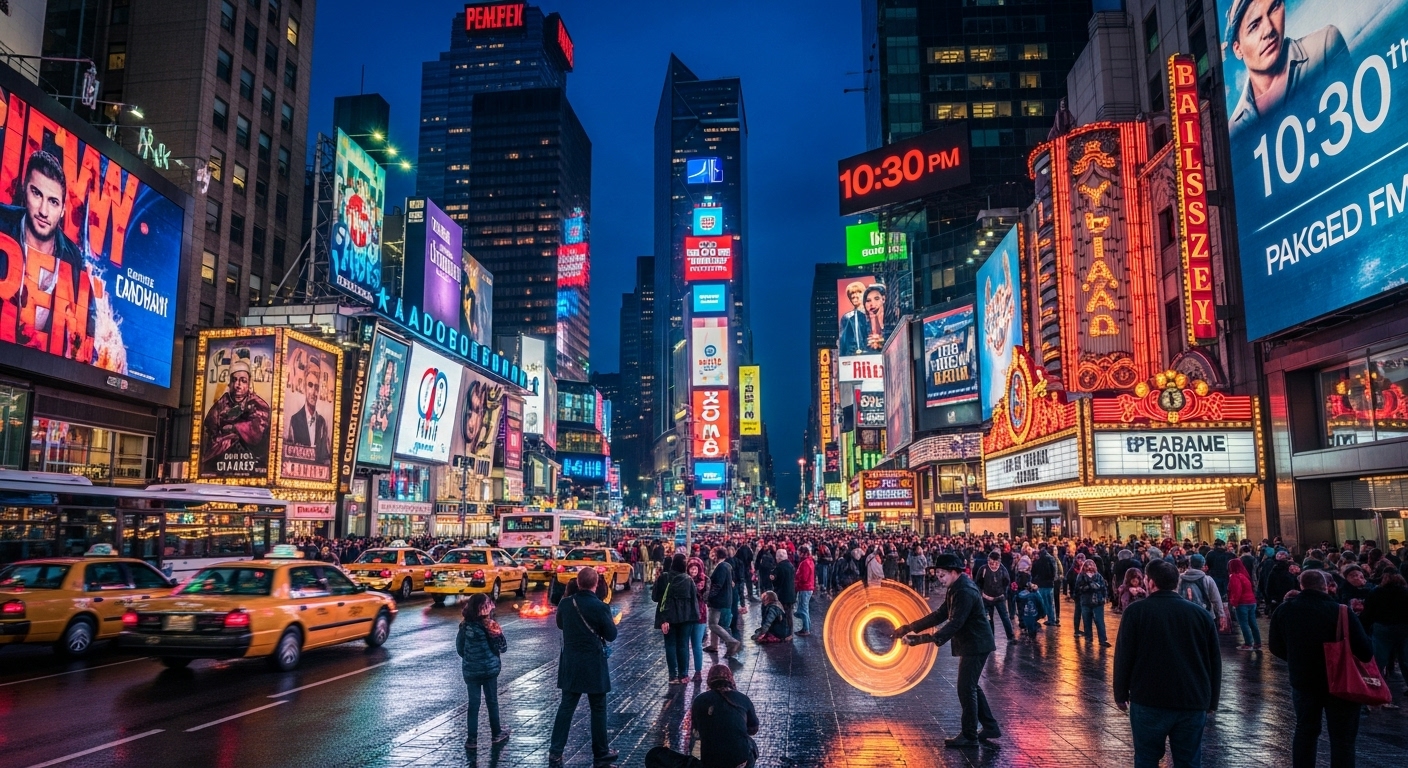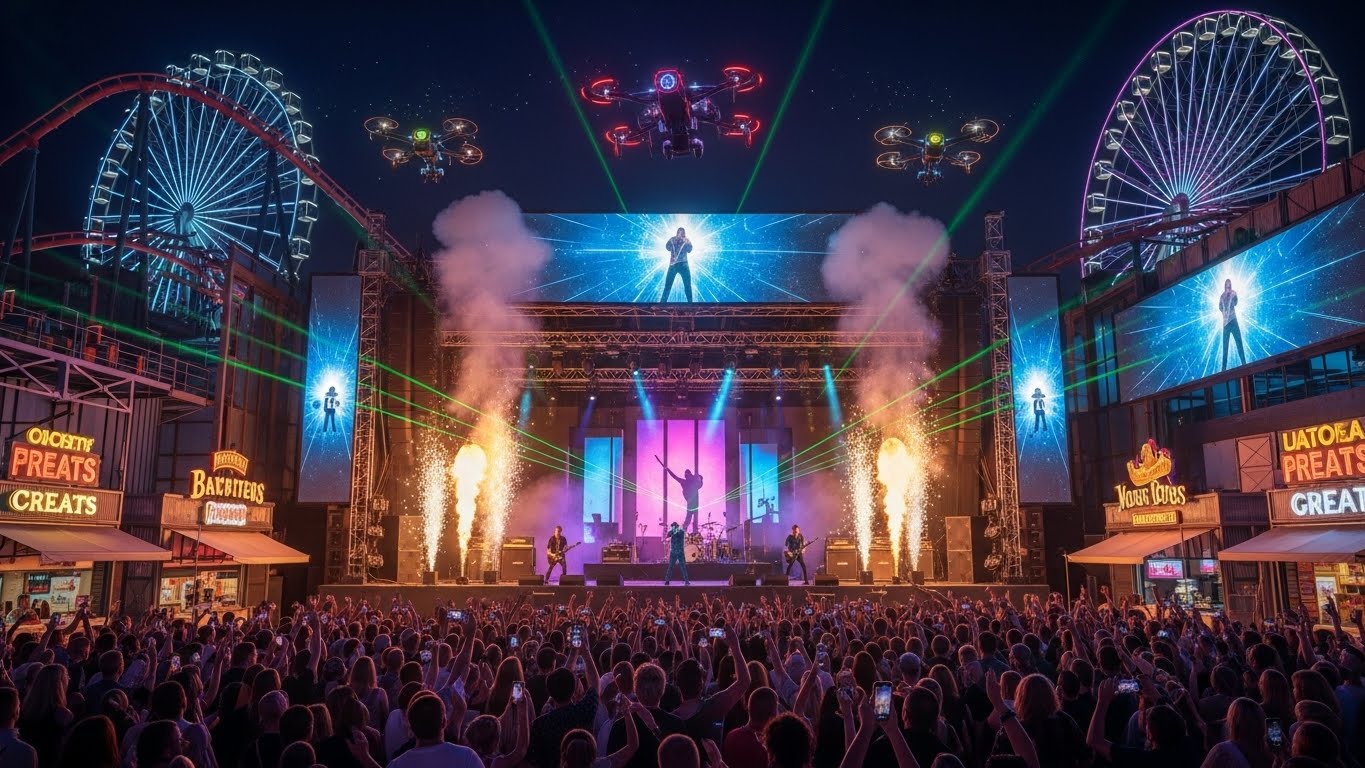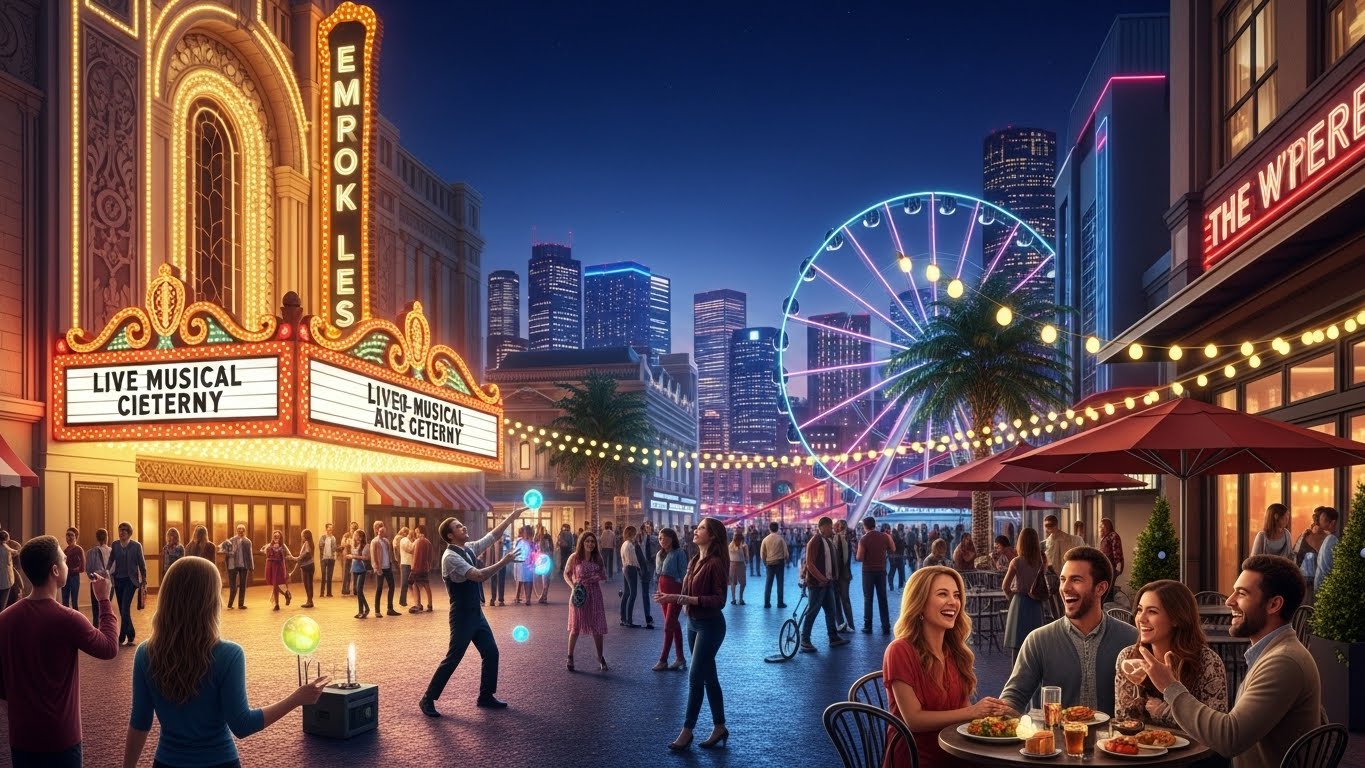Entertainment has always been a defining element of human culture. Over the centuries, it has taken various forms, from storytelling around a fire to the rise of cinema, television, and digital media. But perhaps no time in history has seen as dramatic a shift in how we experience entertainment as the past few decades. The digital age has not only transformed how we consume content but also the very nature of the content itself. In this blog post, we’ll explore the dynamic evolution of entertainment and what the future may hold for this ever-evolving industry.
The Golden Age of Cinema: A Timeless Escape
The early 20th century saw the birth of cinema, and with it, the creation of a new form of mass entertainment. The days of silent films gave way to the magic of sound, color, and breathtaking visuals. For decades, cinema was the dominant form of entertainment, with Hollywood serving as the heart of the global film industry. Stars like Audrey Hepburn, Humphrey Bogart, and Marilyn Monroe became household names, while directors like Alfred Hitchcock and Stanley Kubrick shaped the very language of film.
Movies were more than just a pastime—they were an escape from the ordinary. They transported audiences to far-off lands, different worlds, and unforgettable stories. This golden age continued to evolve throughout the 20th century, with blockbusters like Gone with the Wind, Jaws, and Titanic capturing the collective imagination of generations. For a long time, the cinema was where people turned to experience the magic of storytelling.
The Rise of Television: Entering the Living Room
As the 20th century progressed, television began to take over as the main form of home entertainment. The first TV broadcasts in the 1940s and 1950s introduced a new era where families gathered around their television sets to watch news, sitcoms, dramas, and variety shows. Unlike cinema, television was an accessible, regular form of entertainment that became a staple in almost every home.
The 1960s and 1970s ushered in an era of groundbreaking TV shows, including I Love Lucy, The Twilight Zone, and The Ed Sullivan Show. But it was the 1980s and 1990s that truly revolutionized television, with the advent of cable networks. HBO, MTV, and CNN introduced specialized content that catered to niche audiences, while sitcoms like Friends, dramas like The Sopranos, and reality TV exploded in popularity.
Television also changed how we interacted with stories. A show could now unfold over several seasons, allowing for more complex narratives and deeper character development. Yet, despite these innovations, the consumption of TV still followed a rigid schedule, with viewers tuning in at specific times to watch their favorite shows.
The Digital Revolution: The Birth of Streaming
The 21st century ushered in a new era of entertainment, one defined by the internet. As broadband connections became faster and more reliable, the way we consumed content began to change. No longer bound by the limits of traditional TV networks, viewers could now watch movies and TV shows on-demand, whenever and wherever they wanted.
The rise of platforms like YouTube in the mid-2000s transformed entertainment into a two-way street. Viewers could now not only consume content but also create and share their own. This democratization of content creation gave rise to a new wave of influencers, vloggers, and content creators who built massive followings through platforms like Instagram, TikTok, and YouTube.
However, the most significant shift came with the advent of streaming services. Netflix, initially a DVD rental service, became a pioneer in the streaming world when it launched its subscription-based streaming platform in 2007. Netflix’s model allowed viewers to binge-watch entire seasons of shows, disrupting the traditional weekly TV format. Other platforms quickly followed suit—Hulu, Amazon Prime Video, Disney+, and HBO Max all entered the race, each offering their own exclusive content and catering to various tastes.
For the first time in history, the ability to watch what you want, when you want, became the norm. Streaming services transformed the way we consume media, offering an abundance of choice and creating a new, personalized entertainment experience. No longer did we need to plan our schedules around TV networks; instead, we could enjoy our favorite content on our own terms.
The Age of Interactive Entertainment: Gaming and Virtual Worlds
While streaming services reshaped how we engage with traditional forms of media like movies and TV shows, a parallel revolution has been occurring in the world of gaming. Video games, which were once considered a niche hobby, have now become a dominant form of entertainment in their own right. The gaming industry surpassed even Hollywood in terms of revenue, and major franchises like Fortnite, Call of Duty, and The Legend of Zelda attract millions of players globally.
In addition to video games, the emergence of virtual reality (VR) and augmented reality (AR) is changing the way we experience entertainment altogether. VR offers immersive experiences that allow players to enter fully realized virtual worlds, while AR overlays digital content onto the real world, creating interactive, hybrid environments. These technologies are not only reshaping gaming but also opening new possibilities for virtual concerts, theater performances, and immersive storytelling.
Esports, another offshoot of gaming, has turned competitive video gaming into a global phenomenon. With live tournaments attracting millions of viewers and gamers competing for huge cash prizes, esports is on its way to becoming as mainstream as traditional sports.
The Future of Entertainment: Trends to Watch
As technology continues to evolve, the future of entertainment promises even more exciting developments. Here are a few key trends to watch:
- AI-Generated Content
Artificial intelligence is starting to play a larger role in content creation. From AI-generated music to algorithmic scriptwriting, the possibilities are endless. AI tools are already being used to create personalized recommendations for viewers, but in the near future, they might be used to craft entire movies or TV shows based on viewer preferences. - Further Integration of VR and AR
As VR and AR technologies become more accessible, we can expect to see a deeper integration of these immersive experiences in mainstream entertainment. Imagine watching a concert in virtual reality as if you were right there in the front row or stepping into a video game and interacting with your surroundings in a more intuitive way. - Interactive and Episodic Storytelling
Interactive content, where viewers can influence the plot or the outcome, is likely to become more popular. Netflix’s Bandersnatch was an early experiment in this field, but as technology improves, we may see entire series or films that allow for a fully personalized viewing experience. - Globalization of Content
With the rise of global streaming platforms, content from different cultures and languages is now more accessible than ever. Shows like Squid Game and Money Heist have proven that audiences worldwide are eager for international content. The globalization of entertainment will likely continue, with cross-cultural collaborations and diverse storytelling becoming the norm. - Social Media and Real-Time Interaction
The integration of social media with entertainment is already well underway, with platforms like Instagram, Twitter, and TikTok playing a significant role in the success of movies, shows, and celebrities. The next step will be more real-time interaction between creators and audiences, where fans can influence content as it’s being made or even participate in live, interactive events.
Conclusion: A New Era of Entertainment
The world of entertainment has never been more dynamic. From the golden age of cinema to the rise of television, and from the digital revolution to the immersive experiences of virtual worlds, the ways in which we engage with stories, art, and media are constantly evolving. With each new technological advancement, entertainment becomes more personalized, accessible, and interactive.
Looking forward, the future of entertainment will likely see even more innovation, from the rise of AI-generated content to immersive VR experiences. As technology continues to push the boundaries of what’s possible, one thing is certain: the way we experience entertainment will continue to evolve, offering even more exciting, diverse, and interactive experiences in the years to come.



